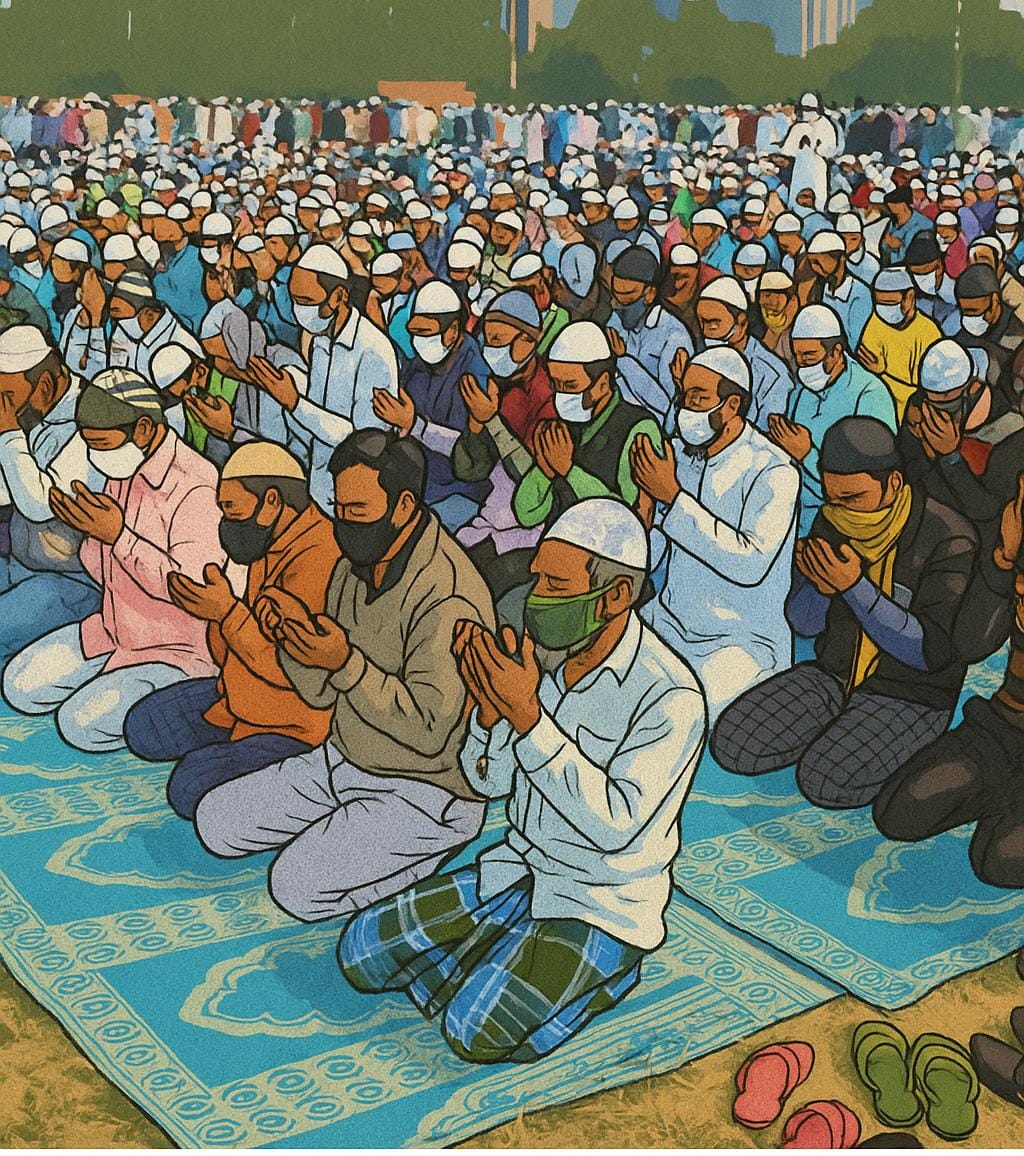| Title | Strategy and Vision in Politics. Jawaharlal Nehru’s policy choices and the designing of political institutions. |
|---|---|
| Author | Priya Kumar |
| Alternative Title | Exploring Muslim Identity in Hindu Nationalism: Beyond Tolerance and Hospitality |
| Category | Studies about Jawaharlal Nehru |
| Number of Pages | 31 |
| Language | English |
| File Size | 417 KB |
| File Type | |
| Country of Publication | England |
| Main Topics | Derrida's Philosophy of "Living Together", The Concepts of Ensemble and Étranger, Distinction Between Stranger and Foreigner. Muslims as Strangers in Hindu Nationalist Discourse, Muslims as Minor Subjects in Secular Nationalist Discourse, hared Exclusions in Nationalist Narratives, Rise and Agenda of Hindu Nationalism, Limits of Hospitality and Paths to Coexistence. |
Summary Note of this Document
This academic essay investigates the ethical and political issues that come with the Hindu-Muslim coexistence in India using Jacques Derrida's "living together" (comment vivre ensemble) concept after his essay "Avowing—The Impossible" as a reference point. Kumar has critiqued that the primary concern in both Hindu nationalist as well as secular Indian nationalist discourses is that they depict Muslims as "strangers" (étranger) or characters that are on the fringes of the Indian nation, thus events them to be dependent on Hindu autochthony (indigenous primacy) and make it harder for any real reconciliation to occur. Reworking of origins, belonging and hospitality for the purpose of being able to live in a just and fair manner together in the future is what she outlines in her paper as an alternative to current practice which is dominated by issues of tolerance and assimilation.
Core Thesis and Derrida's Framework
"Living Together" as Imperative and Ideal: With this expression Derrida hints at a wide range of situations—from forced coexistence (e.g., Israelis and Palestinians cohabiting "armed peace" only because of lack of alternatives) to ethical association beyond the domain of law and contracts, based on trust and "messianic peace." Through her paper, Kumar puts forward the idea of il faut bien vivre ensemble ("one must live well together") as central wherein she connects the two aspects on the one hand a resigned "must" (existence in event of no other option) and on the other hand an aspirational call of concord which could open up new territories beyond totalising "ensembles" (organic entities such as nations or ethnic groups).
Principal Terms: Ensemble and Étranger: By living together one has to deny the exclusiveness of ensemble (as an integrated whole, e.g. a "Hindu nation") and accept the étranger (stranger/foreigner). In his essay, Derrida compares the responsibility for the visitor to God's love, thus it cannot be limited by law or-regulations and still be open to the 'wholly other'. While Kumar explains that a stranger is someone who is physically close but completely unfamiliar with you, as illustrated by Zygmunt Bauman's "third element" - a hybrid that breaks down inside/outside concepts, and a foreigner is simply an outsider defined spatially according to Émile Benveniste. In India, Muslims represent this perplexity: they are within the space yet different because they are thought to have a connection to the Islamic "outside".
Analysis of Nationalist Texts
Kumar compares two prison-written texts (1923 and 1946) with the aim to show how the shared exclusions are revealed despite the differences in their ideologies:
V.D. Savarkar's Hindutva: Who Is a Hindu? (Hindu Nationalist): To define Hindutva ("Hinduness") as the one natural-cultural essence binding the Hindus to India was the hallmark of Savarkar's account in "Hindutva: Who is a Hindu?". Therefore, he excludes Muslims by seeing them as a non-autochthonous group "strangers" due to their religions of origin (Islam from Arabia). Hindutva being anachronistically a never-ending Hindu nation is how Savarkar politically recasts it, demonizing Muslims as invaders whose descendants are alleged to be those converting or mingling with the reassertion of their homeliness. So the use of the language of hostility is automatic as the nation is conceived as being the possessive Hindu "home".
 |
Jawaharlal Nehru's The Discovery of India (Secular Nationalist): Nehru, on the other hand, accepts Hindu cultural supremacy as the central core of Indian society from which the rest of the community organically grows but still embraces Muslims as a minor group that exists within the frame of tolerance and diversity. Nevertheless, the "tolerance" here is not equal-pie as it is still largely controlled by Hindus, indicating the liminal position of Muslims in the community. Nurturing the idea of syncretic India, Nehru's conception still puts Muslim agency under a Hindu-majority umbrella.
Common Aspect and Differences:
Both narratives present the upper-caste Hindus as the "original nationals", a ghostly presence in the lives of Muslims who are continuously reminded of their outsider nature (Savarkar: eternal foreigners; Nehru: assimilable through integration). While Hindu nationalism requires these minorities to be expelled or converted, secularism extends to them conditional membership, but both depend on the autochthonous myths that relegate the minorities to the margins of society.
Broader Implications for Coexistence
- Anti-Autochthonous Discourse: Kumar states that peaceful Hindu-Muslim/India-Pakistan relationships will be possible only when possessive ideas of "home" and origin, which are the main causes of exclusion (e.g., the Hindu Right's story of the medieval Muslim "atrocities" as a continuous attack) will be questioned.
- Hospitality's Limitations: Derrida's model of hospitality without conditions runs the risk of making the host/stranger dichotomy even more visible. The real living requires that the strangers (Muslims) who have come to stay make the place their own and not just that they receive the host's (Hindu) generosity - which is in agreement with Bauman's position that the strangers are the in-between ones who challenge the dichotomies.
- The Advancement of Hindu Nationalism: The essay tells the story of the rise of the Hindu Right (Sangh Parivar/RSS) since the 1980s, which sees the Hindus in racial terms, portrays the Muslims as the enemy threatening and erases the intra-Hindu (caste, region) diversity for a fascist rashtra (nation-state) type of India.
Here ends the excerpt followed by Kumar's deeper textual analysis (rest ~24 pages probably expand on Nuchen, hospitality ethics, and current implications). In sum, Kumar's use of the Derridean lens calls for re-thinking the nation de-totalizing one to allow real harmony that goes beyond "tolerance" that keeps inequality intact. This work interweaves the philosopher's voice, postcolonial theory, and South Asian studies for a complex and nuanced commentary on the secularism and minority rights discourse landscape.
